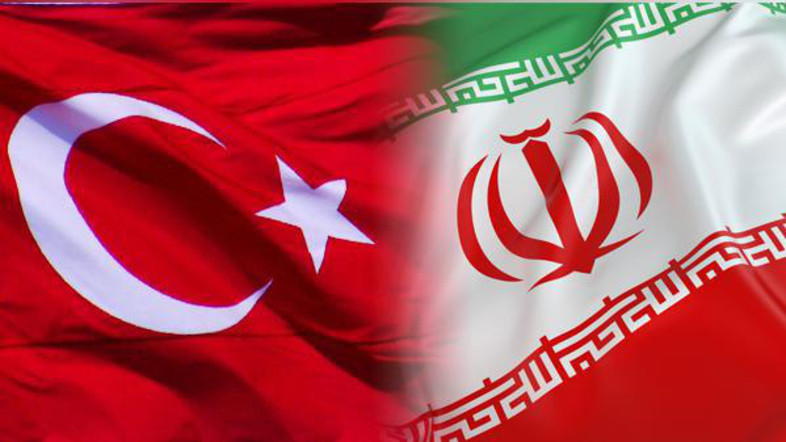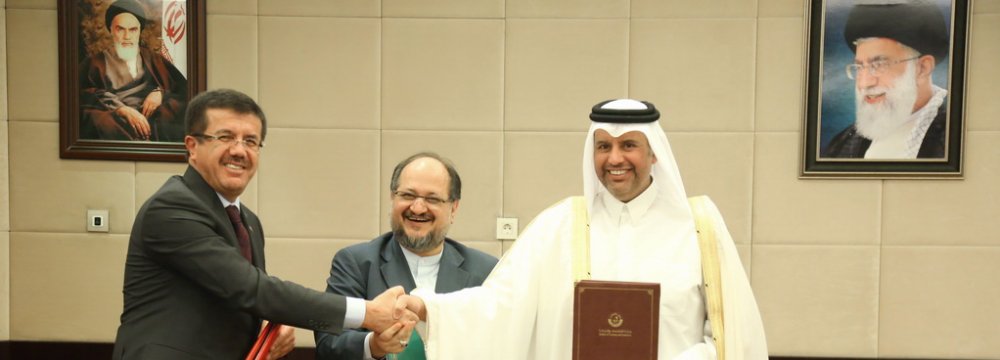Ministers from Turkey, Qatar and Iran signed a transport agreement in Tehran last weekend in order to improve trade amid the continuing Gulf Crisis. Turkish Economy Minister Nihat Zeybekci was present along with Iranian and Qatari counterparts Mohammad Shariatmadari and Ahmed bin Jassim bin Mohammed Al Thani as the pact was signed.
Iran will act as a transit country for commodities heading from Turkey to Qatar and vice-versa as part of the arrangement. Ankara, Tehran and Doha expect the deal to speed up the movement and exchange of goods between their three countries.
The signing comes as Qatar remains isolated from its neighbours on the Arabian Peninsula. Qatar’s only land border has been closed by Saudi Arabia since 5 June this year when the Kingdom, Egypt and other Gulf states Bahrain and the United Arab Emirates (UAE) all severed ties with Doha on the same day. The countries also restricted air travel to Qatar by halting flights from Saudi and UAE airlines, and closing the country’ air links to Egypt.
The breakdown in relations came amid concerns from the four Arab countries that Doha – known for pursuing an ambitious foreign policy in the Middle Eastern region – had supported movements they recognise as terrorists. For their part the Qataris have acknowledged aiding Islamist groups such as the Muslim Brotherhood, but have denied assisting fighters with connections to Islamic State or Al-Qaeda jihadists. Qatar’s strengthening ties with Iran, Saudi Arabia’s main rival for regional hegemony, have also been another point of contention with the other four.
For the Qatari economy, air travel and fuel exports including natural gas and oil are critical, while the country’s land border has served as an important route for around 40% of food imports to enter the Gulf monarchy of 2.7 million people. The new arrangement with Turkey and Iran is intended to ease economic pressure put on Qatar by its fellow Gulf States. Both Turkey and Iran have previously also attempted to address shortages in water, meat, sugar and vegetable supplies caused by the conflict by flying food into the country.
The strengthening partnership between the three states in the face of the Saudi-led coalition, sometimes referred to in the press as an “Arab NATO”, has started to loosely resemble a Cold War.

Regional powers Shi’a Iran and Sunni Saudi Arabia have competed for dominance in the Middle East by supporting militant proxies and regimes against one another in Syria and Yemen based broadly on sectarian lines with the struggle now threatening to engulf Lebanon as well.
Since the Qatar-Gulf Crisis broke out, Turkey’s relations with Iran have warmed considerably. During his Tehran trip Zeybekci also participated in the 26th Session of the Turkish-Iranian Joint Economic Commission, where he pressed the case for a free trade deal between Turkey and Iran. According to a report by the Anadolu News Agency, during the Commission meeting the two countries signed a bilateral deal targeting $10 billion in annual trade.





